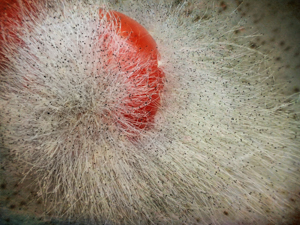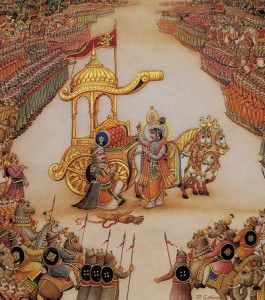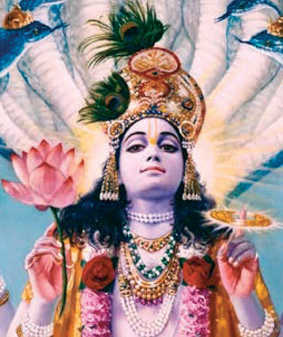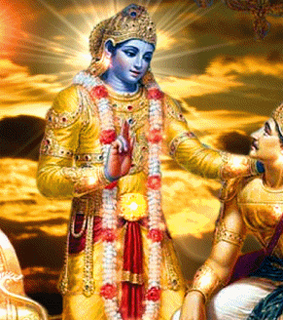
One of the most startling passages that I encountered when I first began to study advaita was that in chapter 2 of the Bhagavad-Gita in which Arjuna bemoans the fact that he is expected to kill his teachers and relatives. Krishna responds with the following amazing statement (II.19 – II.20): “He who thinks that the spirit kills, and he who thinks of it is killed, are both ignorant. The spirit kills not, nor is it killed. It was not born; it will never die: nor once having been, can it ever cease to be: unborn, eternal, ever enduring, yet most ancient, the spirit dies not when the body is dead.” (Ref. 1)
Needless to say, the idea of death is one that disturbs most people. Indeed, it is probably the most feared event for the vast majority whether or not they believe that it signifies the literal end of their existence. Life appears to have the profile of a hill. We start at the bottom; slowly we begin to make an impression on life, ‘making a name for ourselves’, acquiring all of those things that are considered to make life significant – job, spouse, peer recognition, house and money etc. And then, there comes a time when we feel that we have achieved all that we are going to achieve. Ambitions cease; physical and mental capabilities decrease; ailments become more frequent; there is a gradual slide into physical decay and ultimate death. As Macbeth puts it so depressingly:
Life’s but a walking shadow, a poor player
That struts and frets his hour upon the stage
And then is heard no more.
Or, as Jaques puts it in ‘As You Like It’:
Last scene of all,
That ends this strange eventful history,
Is second childishness and mere oblivion,
Sans teeth, sans eyes, sans taste, sans everything. Continue reading →





